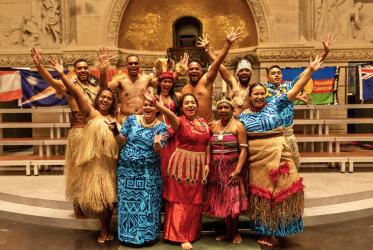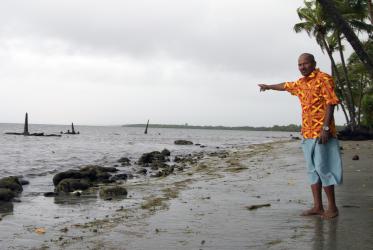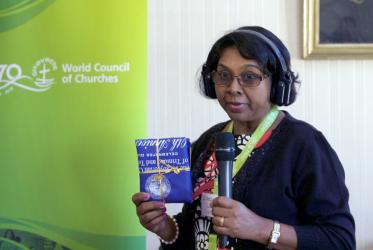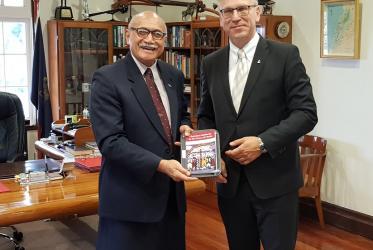Displaying 1 - 13 of 13
15 November 2023
Trinidad and Tobago church challenges plastic pollution
09 October 2018
Hopes shared in Tonga, where dawn starts first
06 August 2017
Momentum builds for ban on nuclear weapons
16 December 2014
Indigenous faith leaders reflect on resilience and climate change
23 September 2014











